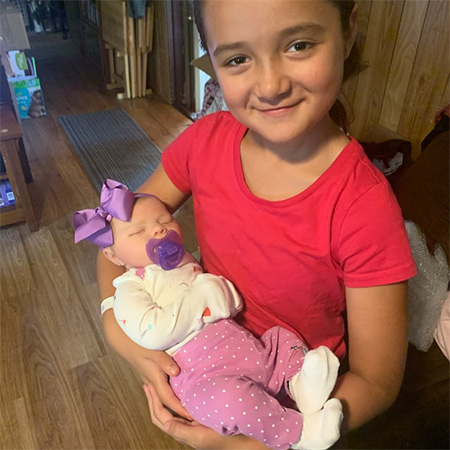Doll therapy, also known as baby doll therapy, has been a popular intervention for people with dementia for many years. Many caregivers, healthcare professionals, and researchers have reported that baby dolls can help calm and soothe people with dementia, reducing anxiety, agitation, and other behavioral issues.
While some people may be skeptical about the effectiveness of doll therapy, there is growing evidence to support its use. Studies have shown that baby dolls can help improve the mood and behavior of people with dementia, and can even reduce the need for medication. However, it is important to note that doll therapy is not a cure for dementia, and should be used in conjunction with other treatments and therapies.
In this article, we will explore the pros and cons of baby doll therapy for people with dementia. We will examine the evidence for its effectiveness, as well as the potential risks and drawbacks. Whether you are a caregiver, a healthcare professional, or simply interested in learning more about this topic, this article will provide you with a comprehensive overview of baby doll therapy and its impact on people with dementia.
Understanding Dementia
Dementia is a progressive brain disorder that affects a person’s cognitive abilities, such as memory, thinking, and communication. It is a common problem among the elderly, and its symptoms can vary from person to person.
Dementia can be caused by various factors, including Alzheimer’s disease, vascular dementia, Lewy body dementia, and frontotemporal dementia. Each type of dementia has its unique symptoms and progression rate, but they all share common characteristics, such as memory loss, confusion, and difficulty with communication.
People with dementia may also experience behavioral and psychological symptoms, such as agitation, aggression, and depression. These symptoms can be challenging for caregivers to manage, and they often require medication and other interventions to control.
It is essential to understand that dementia is a progressive condition that worsens over time. As the disease progresses, the person’s cognitive abilities decline, and they become more dependent on others for their daily needs. Therefore, it is crucial to provide appropriate care and support to people with dementia to improve their quality of life and maintain their dignity.
What Are Baby Dolls?
Baby dolls are life-like dolls that are designed to look and feel like a real baby. They are often used as a therapeutic tool for individuals with dementia. These dolls come in different shapes, sizes, and colors, and they are made of materials that are soft and cuddly to the touch.
Baby dolls are often used to provide comfort and companionship to individuals with dementia who may feel lonely or isolated. They can also help to reduce anxiety and agitation in those who are experiencing memory loss or confusion.
These dolls are not just toys, but rather, they are a form of therapy that can provide emotional support and comfort to individuals with dementia. They can be used in a variety of settings, including nursing homes, hospitals, and in-home care settings.
The Role of Baby Dolls in Dementia Care
Emotional Comfort
Baby dolls can provide emotional comfort to dementia patients. Holding and cuddling a doll can provide a sense of security and comfort, especially for those who may feel anxious or agitated. According to a study cited on Very well Health, using dolls in dementia care can increase smiling and decrease challenging behaviors.
Memory Stimulation
Dolls can also stimulate memories for dementia patients. Many patients may have had children or grandchildren and holding a baby doll can bring back memories of when they held their own children or grandchildren. This can be a positive experience for the patient and can help them feel more connected to their past.
Social Interaction
Using baby dolls in dementia care can also encourage social interaction. Caregivers can use the dolls to start conversations with patients, or patients may interact with the dolls on their own. This can help patients feel more engaged and less isolated.
In conclusion, baby dolls can play an important role in dementia care by providing emotional comfort, stimulating memories, and encouraging social interaction. Caregivers should consider using baby dolls as a non-pharmacological intervention for their patients.
Benefits of Baby Dolls for Dementia Patients
Baby dolls have become increasingly popular among dementia patients as a form of therapy. Here are some benefits of using baby dolls for dementia patients:
- Reduced agitation and anxiety: Holding a baby doll can provide a sense of comfort and calmness to dementia patients, reducing agitation and anxiety. This can be especially helpful for those who have difficulty communicating their needs or emotions.
- Increased social interaction: Dementia patients may become withdrawn and isolated, but baby dolls can encourage social interaction. Patients may talk to the dolls, hug them, or even sing to them, which can lead to improved socialization and communication skills.
- Improved mood: Baby dolls can bring joy and happiness to dementia patients, improving their overall mood. This can lead to a more positive outlook on life and increased feelings of contentment.
- Stimulation of memories: For some dementia patients, baby dolls can stimulate memories of their own children or grandchildren. This can be a source of comfort and a way to connect with their past.
- Safe and non-invasive therapy: Unlike medication or other invasive forms of therapy, baby dolls are a safe and non-invasive way to provide comfort and support to dementia patients. They can be used in a variety of settings, including at home, in nursing homes, or in hospitals.
Overall, baby dolls can provide a range of benefits to dementia patients, from reducing agitation and anxiety to improving social interaction and mood. While they may not be appropriate for everyone, they are a valuable tool in the care of dementia patients.
Potential Concerns and Considerations
Patient’s Personal Comfort
When considering the use of baby dolls as therapy for dementia patients, it’s important to take into account the patient’s personal comfort. While some patients may find comfort in holding and caring for a baby doll, others may not be interested or may even feel uncomfortable with the idea. It’s important to respect the patient’s preferences and not force the therapy upon them.
Misinterpretation by Others
Another potential concern with the use of baby dolls in dementia therapy is the possibility of misinterpretation by others. Some people may see the use of baby dolls as infantilizing or demeaning to the patient, and may not understand the therapeutic benefits. It’s important to educate family members, caregivers, and others involved in the patient’s care about the purpose and benefits of the therapy to avoid misunderstandings and negative reactions.
In addition, it’s important to ensure that the use of baby dolls is not seen as a substitute for proper medical care and treatment. While baby dolls may provide comfort and reduce agitation in some patients, they should not be used as a replacement for medication or other necessary treatments.
Overall, while baby dolls can be a helpful therapy for some dementia patients, it’s important to carefully consider the patient’s individual needs and preferences, as well as educate others involved in the patient’s care about the therapy.
Choosing the Right Baby Doll
When it comes to choosing the right baby doll for a dementia patient, there are a few things to consider. Here are some factors to keep in mind:
Size and Weight
It’s important to choose a baby doll that is the right size and weight for the patient. A doll that is too heavy or too large may be difficult for the patient to hold and could cause discomfort or even injury. On the other hand, a doll that is too small may not provide the same level of comfort and stimulation.
Appearance
The appearance of the doll is also important. Many dementia patients prefer dolls that look realistic and lifelike, with soft skin, hair, and facial features. Others may prefer dolls with bright colors and patterns or with clothing that is reminiscent of their own childhood.
Material
The material of the doll is another important consideration. Some patients may prefer dolls made of soft, cuddly materials like cotton or fleece, while others may prefer dolls made of plastic or vinyl. It’s important to choose a material that is comfortable for the patient and that they will enjoy holding and cuddling.
Accessories
Finally, consider any accessories that come with the doll. Some dolls may come with blankets, bottles, or other items that can provide additional comfort and stimulation for the patient. However, it’s important to make sure that any accessories are safe and appropriate for the patient to use.
Conclusion
Baby dolls have been shown to have a positive impact on the quality of life of patients with dementia. They can help reduce agitation, anxiety, and aggression, and can improve overall mood and social interaction.
While there are some concerns about the ethics of using dolls in therapy, many experts agree that the benefits outweigh the potential risks. It is important to note that doll therapy should not be used as a substitute for human interaction, but rather as a complementary therapy.
It is also important to choose the right type of doll for each patient. Lifelike dolls with realistic features and soft bodies are often preferred, but some patients may prefer dolls with simpler designs.
Overall, baby dolls can be a valuable tool in improving the quality of life of dementia patients. Healthcare providers and family members should consider incorporating doll therapy into their care plans, while also ensuring that patients receive adequate human interaction and support.
Frequently Asked Questions
What are the benefits of using dolls in dementia therapy?
Using dolls in dementia therapy can provide comfort, engagement, and a sense of purpose for patients. It can also help stimulate memories and improve communication between patients and caregivers.
How do dolls help dementia patients?
Dolls can help dementia patients by providing a source of comfort and companionship. They can also help reduce agitation and anxiety, stimulate memories, and improve communication with caregivers.
Are there any potential drawbacks to using dolls in dementia therapy?
Some potential drawbacks of using dolls in dementia therapy include the risk of patients becoming overly attached to the dolls, confusion or disorientation if patients mistake the dolls for real babies, and potential stigma or embarrassment if patients are seen using the dolls in public.
What types of dolls are recommended for dementia patients?
Soft, lifelike baby dolls that are lightweight and easy to hold are typically recommended for dementia patients. The dolls should be easy to clean and maintain, and should be designed to be safe for use by elderly patients.
Can doll therapy help reduce agitation in dementia patients?
Yes, doll therapy has been shown to be effective in reducing agitation and anxiety in dementia patients. The dolls can provide a calming influence and help distract patients from negative thoughts or feelings.
What should caregivers consider before using doll therapy with a dementia patient?
Caregivers should consider the patient’s individual needs and preferences, as well as any potential risks or drawbacks of using doll therapy. They should also ensure that the patient is comfortable with the idea of using a doll, and that the doll is safe and appropriate for use by elderly patients.



